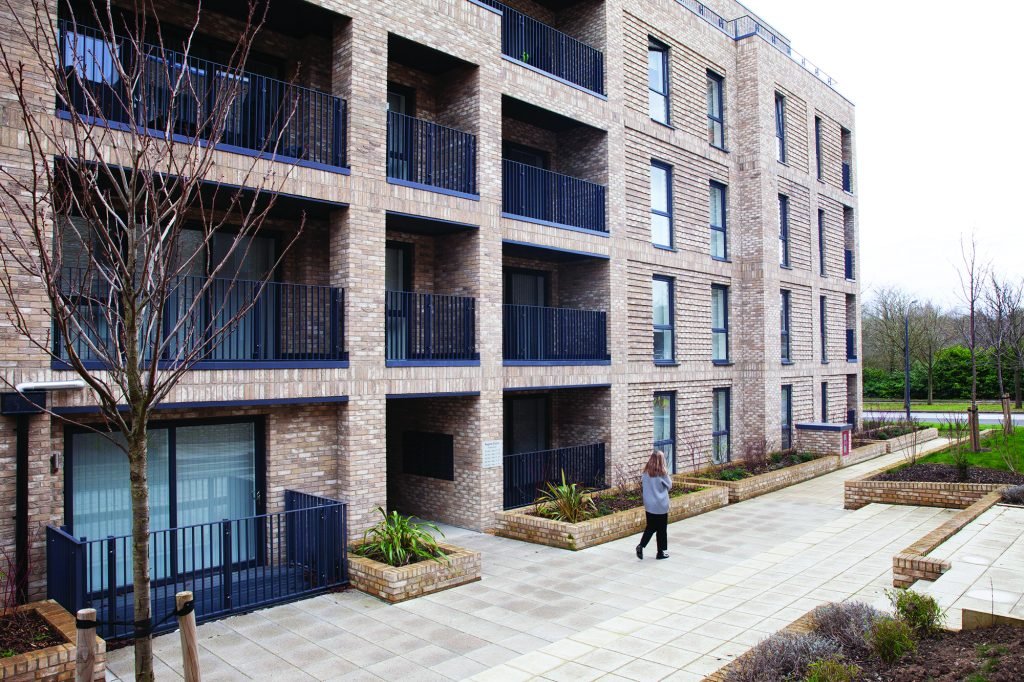Since 2011, Better Society Capital (BSC) has helped the social impact investment market grow 11-fold to more than £9bn. Investment manager Marie-Alix Prat discusses how this capital has financed projects with a social purpose, including those that address the affordable housing crisis.

Marie-Alix Prat
How do you evaluate potential investments?
We invest across a range of business models that tackle social issues and inequalities in the UK and deliver a risk-adjusted return. So, we balance the return of the investment with the risk it is taking. It’s also about finding an asset manager who is aligned with our social objectives and values.
Our investments cover a variety of social issues, including affordable housing. The strategies we invest in cater for the underserved population, such as people in temporary accommodation or key workers being squeezed by the property market.
One of our main objectives is to bring more houses into the UK. BSC has helped provide social and affordable homes for 15,000 people in 12 years. So far, 4,900 homes have been supplied, 74% in areas of constrained affordability.
Around £6.9bn is needed every year to tackle the housing shortage
Another key objective is systems change – we are looking for a model to change the status quo in the way investments and solutions are delivered. For example, we recently invested in a model that creates housing while releasing financing capacity for housing associations.
What are the biggest challenges and opportunities for social impact investment?
The challenge is attracting more private money to address social issues faster – around £6.9bn is needed every year to tackle the housing shortage. We are also calling on the government to ‘spend smarter’ with its existing housing budget to help funds go further and provide more homes.
Public money can be used alongside private money such as catalytic capital, which is investment capital that is patient, risk-tolerant, concessionary and flexible. This government support helps encourage other investors to invest alongside us.
For example, during Covid-19, there was a campaign to get homeless people off the streets and into hotels – but the question was: what happens next? So, we worked with the government and different partnerships, such as the Greater London Authority and the Greater Manchester Combined Authority, to get more public money to invest into solutions.

Home win: BSC invests in affordable housing
The Department for Levelling Up, Housing and Communities invested £25m of catalytic capital into four homelessness property funds, which leveraged another £138m of investment – that is a 5.5x multiplier. We hope to continue working closely with government partners on more projects like this.
How do you define and measure social impact?
In our property investments, we want to deliver safe, stable and affordable homes for people – and we need to track that. One challenge we saw in the sector, with growing private capital in residential affordable housing, is that there were no standards to help compare these investments. So, five years ago, we created the Equality Impact Project with The Good Economy to help equity property investors standardise impact measurement when setting up funds.
Our aim is to create a sector-standard impact measurement approach for equity investments in social and affordable housing, targeting the funds leading this inflow of capital. We hope this will provide consistency and transparency on how fund impact is measured and managed.
Our project engages with 10 investment fund managers as well as Trowers & Hamlins and the Association of Real Estate Funds, which are helping us achieve standardisation.
What notable success stories do you have?
Ten years ago, we invested in a fund manager called Resonance, set up to address the homelessness issue, as hundreds of thousands of UK families live in temporary accommodation – usually in very poor conditions.
The fund manager raised capital with public and private investors, including BSC. It owns the properties, which are leased to a charity or housing association, and the investor is paid back through rents and housing benefits.
The project has continued to raise capital and today it has reached £300m. Earlier this year, we launched research into Resonance’s homelessness-specific funds, which found they had housed more than 3,300 people – including 1,607 children – who were at risk
of homelessness over 10 years, resulting in significant savings for the government on temporary accommodation. This project is especially close to my heart.





